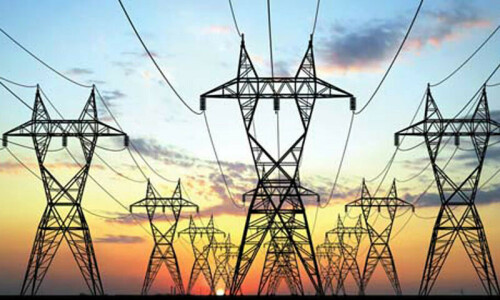KARACHI, Jan 15: The State Bank has once again partially shifted load of oil import bills to the private sector and asked banks to arrange dollars through the inter-bank market.
It issued a circular asking the banks to arrange dollars for the import of furnace oil and other miscellaneous oil products.
This partial import will account for about 20 per cent of the total import bill, which must be substantially lower than the previous year as the oil prices fell to over one third of the peak prices during last year.
“All purchases of foreign exchange related to the import of furnace oil will be made by the banks from the inter-bank market,” said the State Bank. The directive will be effective from Feb 2.
All petroleum related foreign exchange purchases, which are made on specific form ‘M’ (M represents miscellaneous) against approvals issued by the Exchange Policy Department will be made by the banks from the inter-bank market.
The SBP will continue to provide foreign exchange to the banks for import of all petroleum products except furnace oil and miscellaneous petroleum products.
The decision is part of the agreement with the International Monetary Fund (IMF) as the country has accepted to shift entire burden of foreign exchange on the private sector.
According to the agreement, the SBP is committed to pursuing a flexible exchange rate policy. To that end, intervention in the foreign exchange market (including the provision of foreign exchange for oil imports) will be aimed at meeting the programme’s reserves targets.
This primary objective will be facilitated by phasing out the SBP’s provision of foreign exchange for oil imports.
As per the schedule given to the IMF, the SBP will get rid of the import payment of diesel by Aug 1, 2009 and finally of crude oil payment by Feb 1, 2010.
The SBP earlier made the same effort by shifting oil payment bills to the private sector in mid of July 2007. The private sector was bound to arrange their dollars from banks for 30 per cent of their oil imports. (The oil is imported by private parties and the payments are made by the SBP).
The decision effectively reduced the oil payment burden on State Bank, which at that time accounted for approximately $2.3 billion out of the country’s total oil import.
This situation prevailed till the last quarter of calendar year 2008 but the sharp rise in world oil prices and steep decline in the foreign exchange reserves forced the SBP to once again take back the responsibility of the entire oil bills.
The SBP’s decision to pay all oil bills was taken in the wake of massive depreciation of rupee, which created space for speculative market that accelerated the dollar demand.
The demand further depreciated the rupee against the dollar and the dollar reached Rs85 in Nov 2008. The decision to pay all oil bills reduced dollar demand, while the inflow of $3.1 billion IMF first tranche strengthened rupee-dollar parity.
“The decision about furnace oil and miscellaneous oil products could collectively save State Bank’s reserves up to $2.5 billion in a year,” said an analyst adding, however, it will depend on oil prices, which are currently at much lower side.
The commercial banks have a collective reserve of $3.345 billion, the SBP reported on Wednesday. The SBP’s own reserves were $6.656 billion.
With the receipt of the IMF tranche, fall in oil prices and slowing down of economic growth, which substantially reduced import bill, strengthened the rupee-dollar parity at Rs79.80. The rupee is stable after losing 23 per cent weight against dollar in last four months.















































Dear visitor, the comments section is undergoing an overhaul and will return soon.